The «Leadership School for the staff of the High Anti-Corruption Court» has finished recently. At the request of the Court apparatus, the UCU Business School developed the program to meet their needs. The main goal of the training was to enhance the leadership and management skills of line managers, to improve team communication and to set up organizational processes and planning. Today we are sharing memories of how the program went.
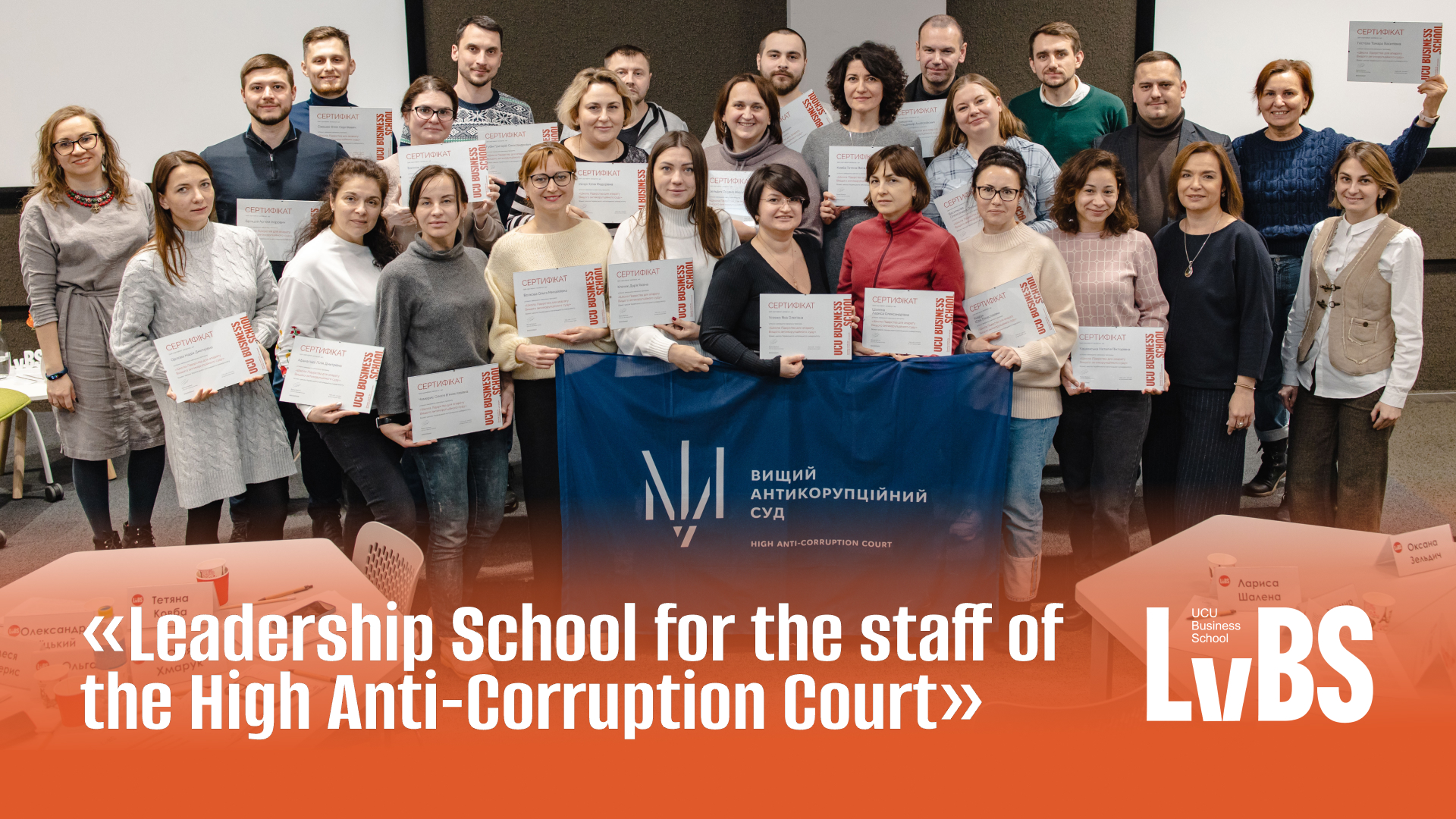
“The curriculum of the UCU Business School is specially designed for the High Anti-Corruption Court apparatus and takes into account current challenges, in particular, those related to work in wartime conditions. I am convinced that our school will help the court apparatus to reach a new level of management culture and guarantee the stability and efficiency of this institution in the future,” said the head of EUACI (EU Anti-Corruption Initiative) Allan Pag Christensen.
History
Back in 2017-2018, in Ukraine, active discussions regarding the introduction of a new concept – the High Anti-Corruption Court – began. Already then, the EU Anti-Corruption Initiative actively supported its establishment.
The High Anti-Corruption Court began its work in 2019 and became an important stage on the way to the implementation of anti-corruption and judicial reforms.
“Now, when in three years of work, the court is approaching the mark of 100 convictions in cases of top corruption, we can state with confidence that the court has qualitatively passed the first stage of its formation as an institution,” said EUACI head Allan Pag Christensen.
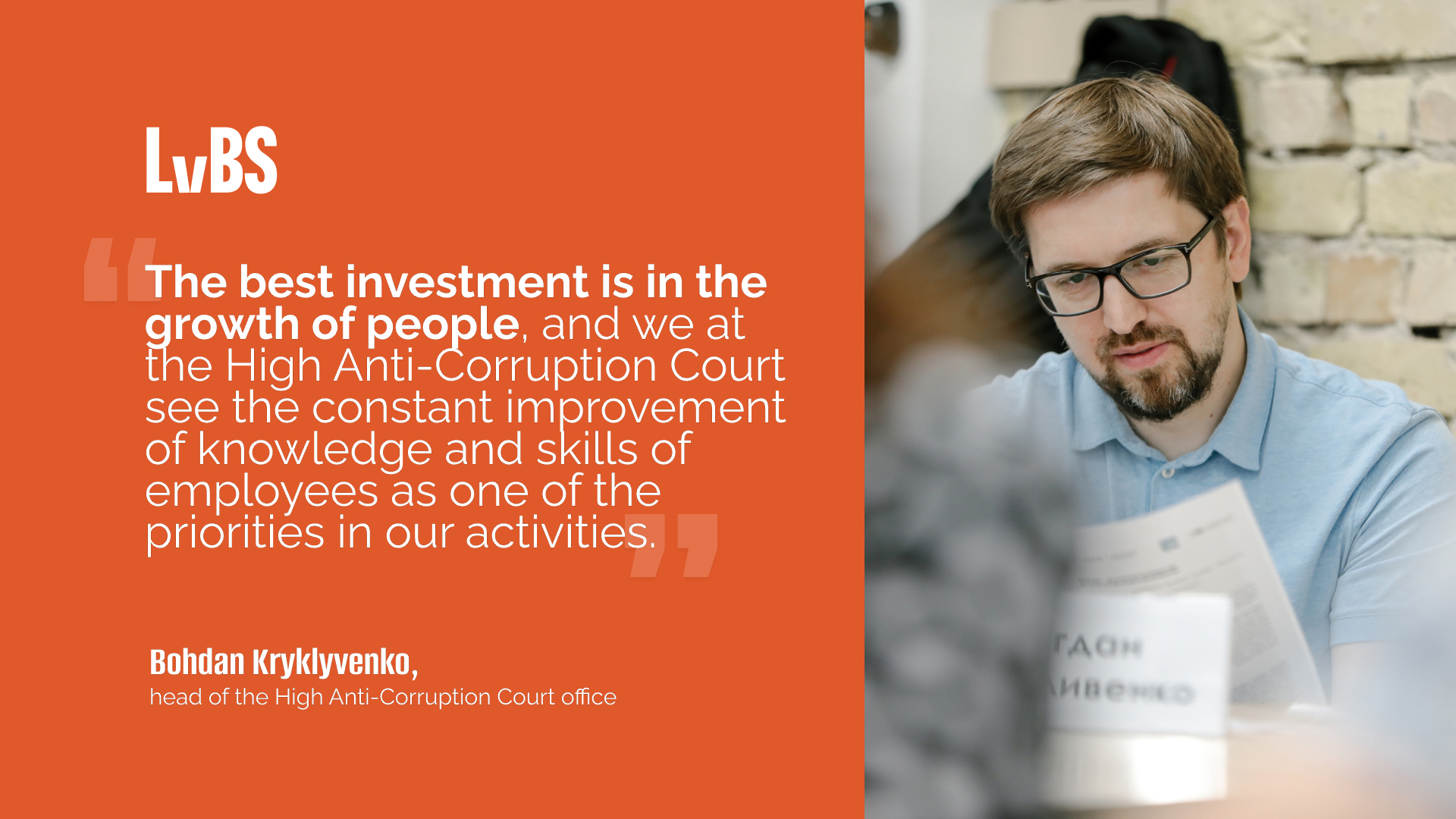
Even before the full-scale invasion, the High Anti-Corruption Court team, together with the international partner EU Anti-Corruption Initiative (EUACI), conducted a personnel needs assessment and planned a focus course for line managers of the Court apparatus. The UCU Business School helped create the program directly on demand, which was scheduled to start in March 2022.
“In July, we thought that nothing could stop us, and in August we started a 5-module training course. These 5 modules with the UCU Business School helped us focus on team communication skills, transformational leadership, organizational processes and planning, and managerial thinking. In addition to knowledge and communication with incredible lecturers, we also went through “Leadership in the Mountains” in October, team coordination in Frankivsk and Lviv,” Bohdan Kryklyvenko, head of the High Anti-Corruption Court office, shares his memories.
“Starting with this program during the 4th month of the war was quite a challenge for us. It was also not easy to find a place with a shelter, to coordinate teachers and experts who all had a busy schedule. Also, the last module had to be postponed at the last moment, since our esteemed experts could not take part in any way. However quality, which will not tolerate compromises, is in the first place for us,” says Olena Sen’ko, head of management programs.
How did the training go?
The program consisted of five modules:
- Module 1. Reforms and evolution in the process of state formation. Formation of teams and personnel management.
- Module 2: Neuromanagement of communications. Transformational leadership.
- Module 3. Leadership in conditions of uncertainty. Change management.
- Module 4: Strategic thinking and strategic management tools. Basic aspects of project and process management.
- Module 5: Ethics, management thinking and effective interaction: historical and contemporary context.
We started with the important topic of transformation of a state institution. Oleksandr Starodubtsev shared his own experience and, together with the High Anti-Corruption Court team, analyzed the cases and life hacks of “ProZorro.” Valeriy Pekar discussed with the participants about the evolution of thinking, leadership, and management. We focused on the evolution of societies and state formation in more detail.
What happened next? Olena Skliarenko shared the secrets of team formation and personnel management. We also looked at ways of increasing the effectiveness of the team in conditions of uncertainty together with Natalia Kadeya, and talked about the neuromanagement of communications.
The focus not only of the second module, but of the entire program, was leadership. Together with Andriy Rozhdestvenskyi, the participants discussed what real leadership is. They formed the image of a leader, his/her inherent virtues and role in the team. The theoretical course of “Transformational Leadership” prepared the participants for the challenges they later faced in the mountains, during the practical part of the training. “Leadership in the mountains” only revealed the potential of the High Anti-Corruption Court team, their strengths and ability to work together.
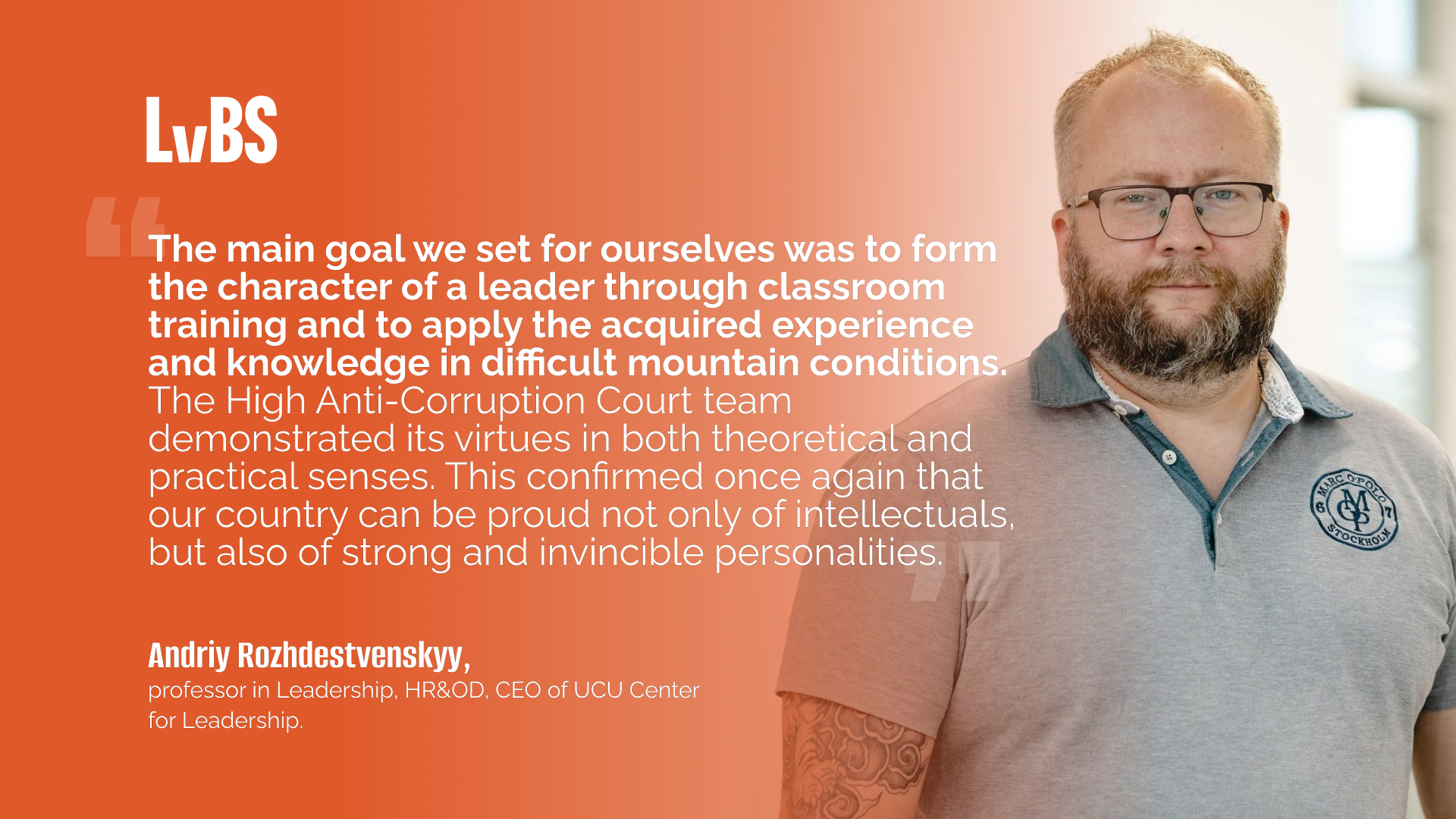
During the mountainous part of the program, neither bad weather conditions, nor night crossings, nor physical and emotional exhaustion of the participants, became an obstacle to the set goals. Stamina of mind and body as a result of team victory.
Immediately after the practical part in the mountains, the participants left for further training in Ivano-Frankivsk and began their day by getting familiar with the activities of the company Promprylad. Renovation.
Later, together with Oleksandra Alkhimovych, the group worked on the development of the organization. They talked about:
- changes, as an important component of organizational development, prerequisites and reasons for changes;
- received practical tools for implementing changes in real conditions;
- analyzed the basics of process analysis and audit on a live case.
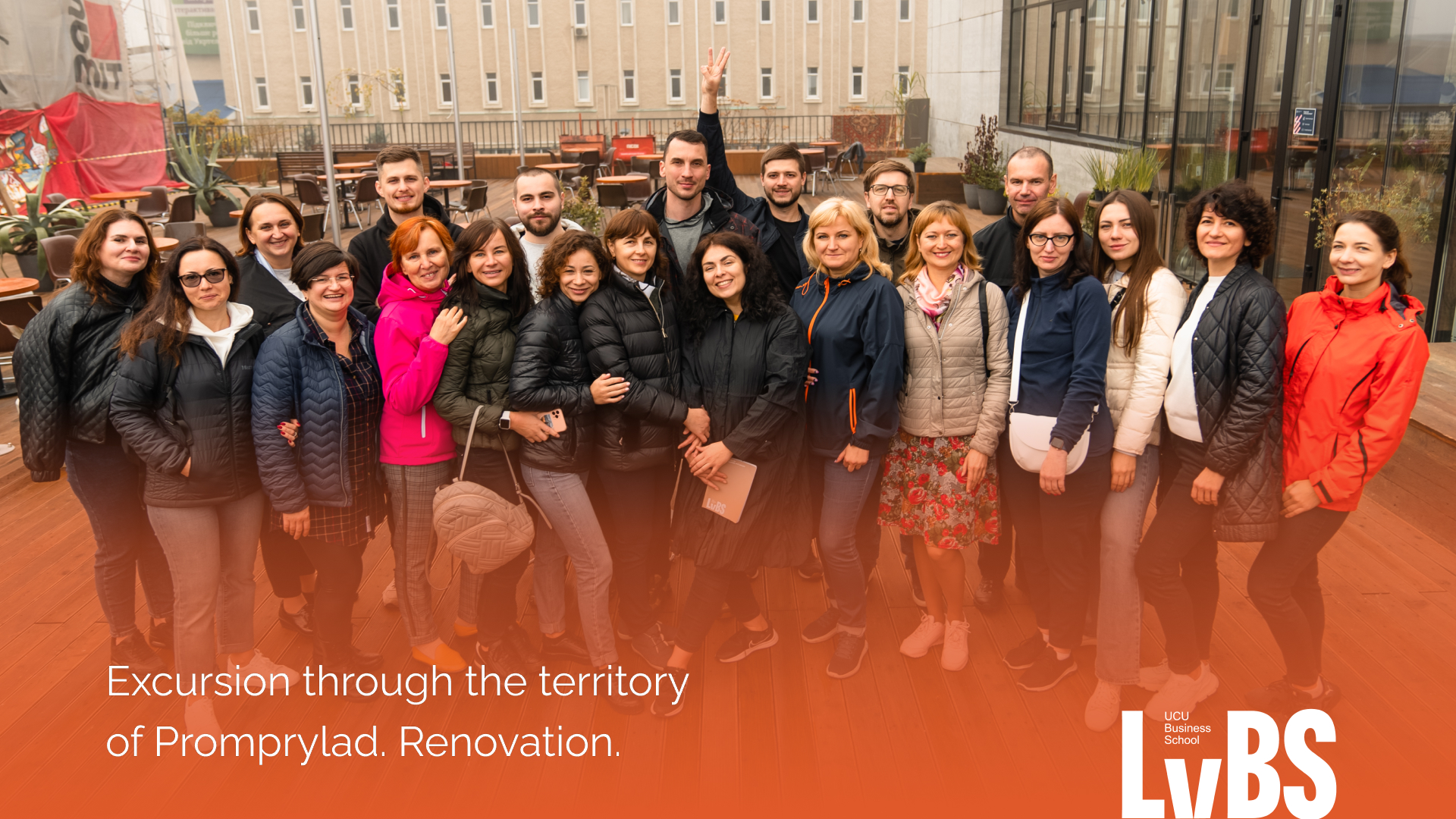
The team of the High Anti-Corruption Court already held the final module in Lviv. It was devoted to ethics, management thinking, and effective interaction.
In addition, participants had the opportunity to:
- to meet with the rector of the Ukrainian Catholic University Fr. Bohdan Prakh;
- discuss with Yaroslav Hrytsak how the past helps us understand this war;
- to discuss the main trends of management intelligence with Oleksandra Liashenko.
Together with Mykhailo Vynnytskyi, the participants analyzed the paradigms of the development of the organization, internal and external “clients,” and the role of the “executive” body (secretariat, apparatus) in the activities of a quasi-state body. The participants worked on the case NAZIAVO. This situational exercise was specially prepared by Mykhailo for discussion in the audience.
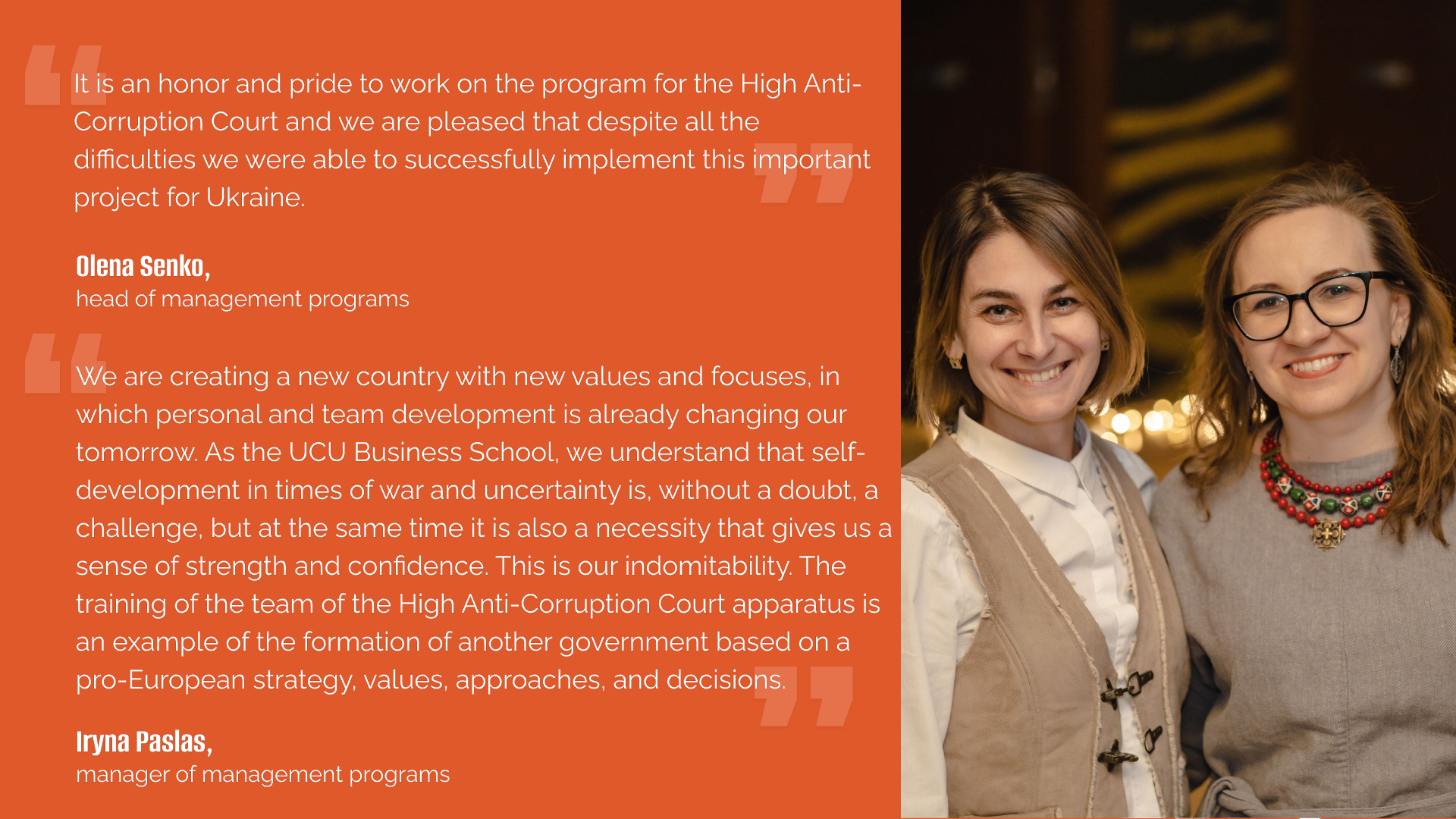
The project was implemented with the support of the EU Anti-Corruption Initiative (EUACI), the leading anti-corruption program in Ukraine, which is financed by the EU, co-financed and implemented by the Ministry of Foreign Affairs of Denmark.




















